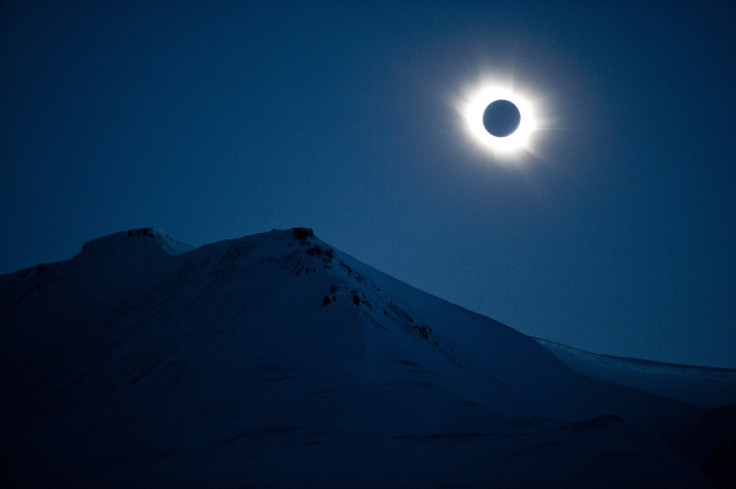Total Solar Eclipse Live Stream: Watch The Astronomical Event Here

The first total solar eclipse of 2016 will only be visible to a small small section of the world, but there are plenty of live stream options regardless of where you live on Earth. NASA and the robotic observatory Slooh will each have a total solar eclipse live stream covering the start of the eclipse. Slooh's coverage airs from Indonesia at 6 p.m. EST. NASA's broadcast originates from Micronesia with a start time of 8 p.m. EST.
During the total solar eclipse, the moon will pass between the sun and Earth with the moon's shadow blotting out the sun for those of us on Earth. The Philippines, Indonesia and Borneo are among the countries in Southeast Asia that will experience it all first-hand. Areas of Alaska, America Samoa, Guam and Hawaii will observe a partial solar eclipse.
Totality occurs when the moon completely blocks the sun, which will leave the bright corona visible. This is the most dramatic moment of the eclipse as the skies go dark with only a fiery halo visible. It's quite a spectacle for viewers and scientists alike.
NASA will spend the time during totality conducting science in Indonesia. Of particular interest is the sun's inner atmosphere, which is only visible during a total solar eclipse. "The sun’s atmosphere is where the interesting physics is,” said Nelson Reginald, a space scientist from NASA’s Goddard Space Flight Center, in a statement. By studying the corona, scientists can gain new insights into coronal mass ejections, large clouds of charged plasma that could affect satellites and cause radio blackouts on Earth, and the heating of the corona.
Slooh's broadcast of the eclipse will be hosted by astronomer Paul Cox. In Indonesia, totality takes place at 7:37 p.m. EST. The broadcast will include views of the partial solar eclipse from Hawaii.
NASA's broadcast from Micronesia begins at 8 p.m. EST with totality taking place at 8:38 p.m. EST. Ahead of the solar eclipse, the space agency hosts a Reddit Ask Me Anything to discuss the event.
© Copyright IBTimes 2024. All rights reserved.




















